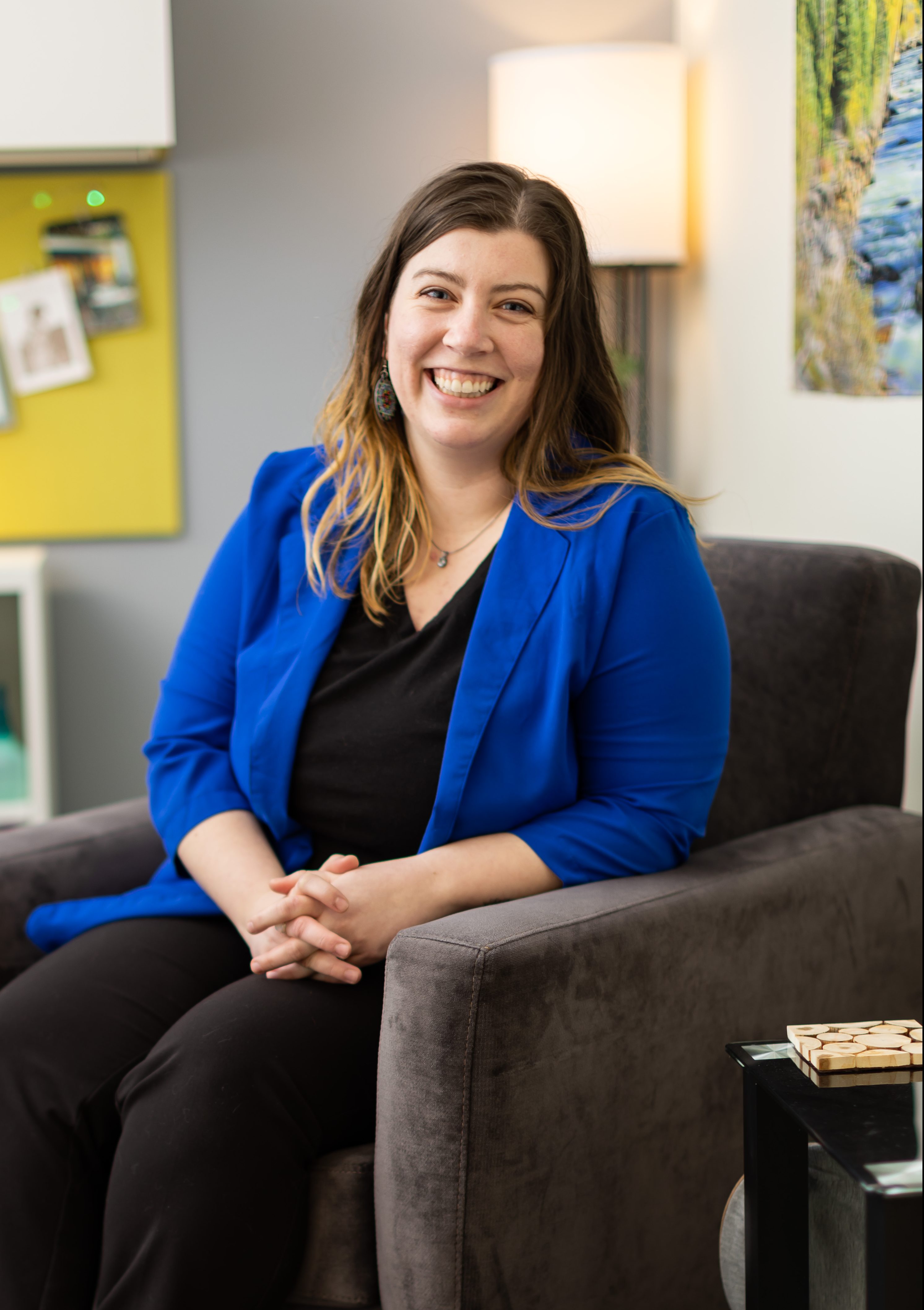Walk and Talk Therapy: Moving the body, quieting the mind

By Samantha Shepherd, LICSW • JFCS Therapist
Part of my clinical practice as a psychotherapist at Jewish Family and Children’s Service of Minneapolis focuses on supporting the mind-body connection. The biomedical model treats the body and mind as two separate entities, when other frameworks of healing acknowledge that they are an interconnected system. One approach that I use to support clients with this is walking outdoors during sessions, referred to as Walk and Talk sessions.
What is Walk and Talk Therapy?
Walk and Talk is a therapeutic approach that combines walking, therapy and nature. After an initial intake counseling session, clients and therapists collaborate on hopes for the services and how to make these a reality. For some of my clients, Walk and Talk is part of their path to healing.
What are the benefits?

In this modality, there is an emphasis on the mind-body connection. This can lead to reduction of stress, relieve body tension, and improve circulation. Movement reduces levels of the body’s stress hormones, such as adrenaline and cortisol. It also stimulates the production of endorphins, the body’s natural mood elevator. This process is a viable option for clients that do not find a traditional therapy setting appealing or comfortable. Walking side by side instead of direct eye contact may be an easier way for some folks to share and reflect. Clients that participated in Walk and Talk reported an increase in openness and connection to self, as well as reduced stress.
What happens in sessions?
We meet and check in at the JFCS office and then move our session outdoors. Walking side by side, we discuss what comes to mind for you that day in alignment with your overall goals, just as if we were sitting inside the office together or meeting virtually. At times, we might take a few moments to stand in silent reflection, deep breathe, or sit in guided visualization. The movement in these sessions is easygoing; you set the pace for our sessions.
Healing begins with the first step.
“The goal is not to heal and then begin your life. The goal is to embrace healing
as a lifelong journey and allow genuine connections to emerge organically
along the way.” – Yung Pueblo
To meet with a provider in the Counseling department, call 952-546-0616 or click here.
